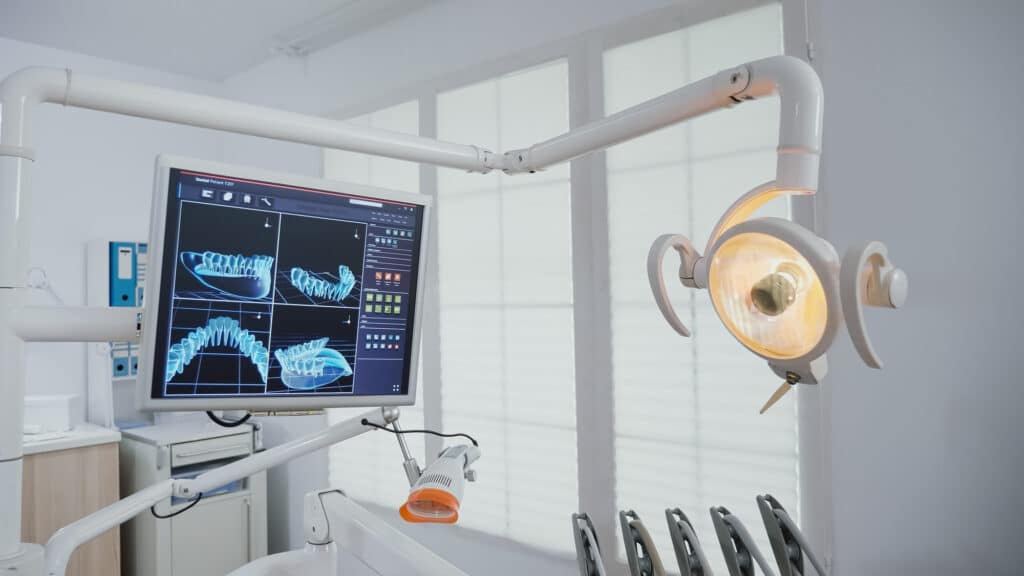Nutrition Secrets for Combatting Tooth Decay
Tooth decay, also known as dental caries or cavities, is a common issue that affects people of all ages. While good oral hygiene practices like brushing and flossing are essential, your diet also plays a significant role in maintaining healthy teeth. In this article, we’ll explore the nutrition secrets for combatting tooth decay and how you can incorporate these habits into your daily life.
Understanding Tooth Decay
Tooth decay occurs when the bacteria in your mouth produce acids that erode your tooth enamel. This process can lead to cavities, pain, and even tooth loss if not addressed. The good news is that you can significantly reduce your risk of tooth decay by making informed dietary choices.
It’s essential to understand that the mouth is a complex ecosystem where various factors contribute to the health of your teeth and gums. The balance between harmful and beneficial bacteria, saliva production, and dietary choices all play a role in either promoting or preventing tooth decay. By focusing on nutrition, you can create an environment that supports oral health.
The Role of Sugar
One of the primary culprits behind tooth decay is sugar. When you consume sugary foods and beverages, the bacteria in your mouth feed on the sugars and produce acids as a byproduct. These acids can weaken your enamel and lead to cavities.
It’s not just the obvious sugary treats that can cause harm; even foods that seem healthy, like fruit juices and certain cereals, can contain high levels of sugar. The frequency of sugar consumption is also a factor; frequent snacking on sugary items can lead to a continuous acid attack on your teeth. Being mindful of both the type and frequency of your sugar intake is crucial for dental health.
Reducing Sugar Intake
To minimize the risk of tooth decay, it’s crucial to reduce your sugar intake. This includes obvious sources like candies, sodas, and desserts, as well as hidden sugars found in processed foods and drinks. Reading nutrition labels can help you identify and avoid these hidden sugars.
Substituting sugary snacks with healthier options like fruits, nuts, or cheese can make a significant difference. Moreover, using sugar substitutes like xylitol, which has been shown to reduce the levels of decay-causing bacteria, can also be beneficial. Developing a habit of rinsing your mouth with water after consuming sugary foods can help wash away some of the harmful acids and sugars.

Foods That Promote Dental Health
Certain foods can help strengthen your teeth and combat tooth decay. Incorporating these foods into your diet can make a significant difference in your oral health.
Dairy Products
Dairy products like milk, cheese, and yogurt are rich in calcium and phosphorus, which are essential for strong teeth and bones. These foods also help neutralize acids in your mouth, reducing the risk of tooth decay.
Cheese, in particular, can stimulate saliva production, which is beneficial for washing away food particles and neutralizing acids. Yogurt often contains probiotics, which can help maintain a healthy balance of bacteria in your mouth. Regular consumption of dairy can thus provide a dual benefit for your teeth.
Leafy Greens
Leafy greens such as spinach, kale, and broccoli are excellent sources of vitamins and minerals, including calcium. These vegetables also stimulate saliva production, which helps wash away food particles and acids from your teeth.
In addition to calcium, leafy greens are rich in folic acid and B vitamins, which have been linked to improved gum health. The fibrous nature of these vegetables also provides a mechanical cleaning action, helping to scrub teeth as you chew. Including a variety of leafy greens in your diet can therefore support both dental and overall health.
Crunchy Fruits and Vegetables
Crunchy fruits and vegetables like apples, carrots, and celery have a natural cleansing effect on your teeth. Their fibrous texture helps scrub away plaque and food particles, while their high water content stimulates saliva production.
These foods can also serve as a healthy snack alternative to sugary or starchy items. The act of chewing crunchy fruits and vegetables increases saliva flow, which is essential for neutralizing harmful acids and providing minerals to repair tooth enamel. Incorporating these foods into your daily diet can thus act as a natural toothbrush for your teeth.
Nuts and Seeds
Nuts and seeds, such as almonds, walnuts, and chia seeds, are packed with essential nutrients like calcium, magnesium, and phosphorus. These nutrients contribute to strong teeth and help prevent tooth decay.
Nuts and seeds also have a low glycemic index, meaning they don’t spike your blood sugar levels, which can be beneficial for both dental and overall health. Additionally, chewing nuts stimulates saliva production, further aiding in the prevention of tooth decay. Including a variety of nuts and seeds in your diet can provide a crunchy, nutrient-dense snack that supports oral health.
Beverages for Dental Health
What you drink can also impact your oral health. Choosing the right beverages can help protect your teeth from decay.
Water
Water is the best beverage for your overall health, including your dental health. Drinking water helps wash away food particles and acids from your mouth, reducing the risk of tooth decay. Fluoridated water, in particular, can help strengthen your tooth enamel.
Drinking water throughout the day can help maintain a healthy pH balance in your mouth. It’s also important to stay hydrated, as dehydration can reduce saliva production, making it easier for acids and bacteria to damage your teeth. Carrying a water bottle and sipping regularly can make this habit more manageable.
Green Tea
Green tea contains compounds called catechins, which have antibacterial properties that can help reduce the growth of harmful bacteria in your mouth. Drinking green tea can also help neutralize acids and promote overall oral health.
Green tea is also rich in antioxidants, which can help reduce inflammation and promote gum health. Opting for unsweetened green tea ensures you reap these benefits without the added sugars that can contribute to tooth decay. Including a cup of green tea in your daily routine can thus support your dental health in multiple ways.
Milk
As mentioned earlier, milk is rich in calcium and phosphorus, which are essential for strong teeth. Drinking milk can help neutralize acids and strengthen your enamel.
Consuming milk with meals can be particularly beneficial, as it can help counteract the acids produced by other foods. Moreover, milk’s high protein content can help repair and build tissues, including those in your gums. Regularly including milk in your diet can thus provide a comprehensive benefit to your oral health.
Foods and Drinks to Avoid
While some foods and beverages promote dental health, others can contribute to tooth decay. It’s essential to be mindful of these items and consume them in moderation.
Sugary Snacks and Beverages
Sugary snacks and beverages, including candies, sodas, and fruit juices, are major contributors to tooth decay. These items can lead to an increase in harmful bacteria and acids in your mouth, weakening your enamel and causing cavities.
It’s not just the sugar content but also the acidity of some of these beverages that can be harmful. Sodas, for example, often contain phosphoric and citric acids, which can erode enamel. Limiting the consumption of these items and opting for healthier alternatives can significantly reduce your risk of tooth decay.
Sticky and Chewy Foods
Sticky and chewy foods, such as caramel, taffy, and dried fruits, can adhere to your teeth and provide a breeding ground for bacteria. These foods are challenging to remove and can increase the risk of tooth decay.
Even foods like peanut butter can stick to teeth and cause problems if not cleaned properly. The longer these foods remain on your teeth, the more time bacteria have to produce acids that cause decay. Being cautious about the frequency and manner in which you consume these foods can help protect your dental health.
Acidic Foods and Drinks
Acidic foods and drinks, such as citrus fruits, vinegar, and carbonated beverages, can erode your enamel and make your teeth more susceptible to decay. It’s essential to consume these items in moderation and rinse your mouth with water afterward to neutralize the acids.
Eating acidic foods as part of a meal rather than on their own can help mitigate their harmful effects. For instance, combining citrus fruits with a meal can reduce the overall acidity in your mouth. Additionally, using a straw when drinking acidic beverages can help minimize contact with your teeth.

Tips for Maintaining a Tooth-Friendly Diet
Incorporating tooth-friendly foods and beverages into your diet is essential for maintaining good oral health. Here are some tips to help you get started:
Eat a Balanced Diet
A balanced diet that includes a variety of fruits, vegetables, lean proteins, and whole grains can provide the essential nutrients your teeth need to stay healthy. Aim to include a mix of tooth-friendly foods in your meals and snacks.
Incorporating foods from all food groups ensures that you get a wide range of nutrients necessary for overall health, including dental health. Planning your meals ahead of time can help you make more balanced and nutritious choices. Including a variety of colors and textures in your diet can also make eating more enjoyable and beneficial.
Limit Snacking
Frequent snacking can increase the risk of tooth decay, as it provides a constant source of fuel for bacteria in your mouth. Try to limit snacking between meals and opt for tooth-friendly snacks when you do.
If you must snack, choose options like cheese, nuts, or crunchy vegetables that can help clean your teeth and provide essential nutrients. Avoid grazing throughout the day and instead stick to structured meal times to give your teeth a break from constant exposure to food particles and acids. Implementing these habits can make a significant difference in your oral health.
Practice Good Oral Hygiene
In addition to a tooth-friendly diet, maintaining good oral hygiene practices is crucial for preventing tooth decay. Brush your teeth at least twice a day, floss daily, and visit your dentist regularly for check-ups and cleanings.
Using fluoride toothpaste and an antibacterial mouthwash can further enhance your oral care routine. Regular dental visits can help catch any potential issues early and provide professional cleaning that goes beyond what you can achieve at home. Consistently practicing good oral hygiene can thus provide a strong defense against tooth decay.
Stay Hydrated
Drinking plenty of water throughout the day can help wash away food particles and acids from your mouth, reducing the risk of tooth decay. Aim to drink at least eight glasses of water a day and choose fluoridated water when possible.
Staying hydrated also supports overall health, including the proper functioning of your digestive system and the health of your skin. Carrying a reusable water bottle can help remind you to drink water throughout the day. By making hydration a priority, you can support both your dental and overall well-being.
Conclusion
Tooth decay is a common issue that can be prevented with the right dietary choices and good oral hygiene practices. By incorporating tooth-friendly foods and beverages into your diet, reducing your sugar intake, and practicing good oral hygiene, you can significantly reduce your risk of tooth decay and maintain a healthy smile. Remember, your diet plays a crucial role in your oral health, so make informed choices and take steps to protect your teeth every day.
Contact Legacy Dental in Boynton Beach, FL
Taking the first step towards better oral health is easier than you think. Contact Legacy Dental in Boynton Beach, FL for expert dental care and personalized treatment plans. Our team of skilled professionals is dedicated to helping you achieve and maintain a healthy, beautiful smile. Schedule your appointment today and experience comprehensive dental care in a welcoming and comfortable environment.
Don’t wait—your oral health is too important. Call us now to book your consultation!



